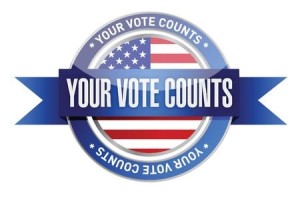New Jersey citizens planning to vote for the next President will need to make sure that they are registered three weeks prior to the election. In Rutgers University Student Association v. Middlesex County Board of Elections, the Appellate Division rejected a legal challenge to the state’s 21-day pre-election registration requirement. 
The Facts of the Case
In order to vote in any election, an eligible voter must register “in the manner” provided by law. Pursuant to N.J.S.A. 19:31-6.3(b):
Any person entitled to register to vote may register as a voter in the election district in which that person resides at any time prior to the [twenty-first] day preceding any election by completing a registration form . . . and submitting the form to the commissioner of registration of the county wherein the person resides or alternatively, in the case of a registration form provided by the employees or agents of a public agency or a voter registration agency, . . . to those employees or agents or to the Attorney General.
The Rutgers University student body governing association alleged that they should be permitted to register to vote on election day, and that the twenty-one-day advance registration requirement improperly infringes on their right to vote under N.J. Const. art. II, § 1, ¶ 3(a). In support of their argument, the plaintiffs stated that the Statewide Voter Registration System, which replaced paper records, allows election officials to instantaneously verify a voter’s registration. Moreover, they argued that prohibiting election day registration “severely burdens the right to vote of thousands of New Jersey residents … [and] prevents otherwise eligible citizens from casting a ballot and having their ballot count.” In response, the state maintained that the 21-day deadline is needed to “prevent voter fraud and ensure public confidence in the integrity of the electoral system.”
The Court’s Decision
The appeals court rejected the constitutional challenge. It held that “the statute furthers the fundamental State interest in preserving the integrity of New Jersey’s electoral process, while imposing no unreasonable burden upon plaintiffs’ right to vote.”
In reaching its decision, the panel noted that “states are entitled to broad leeway in regulating elections to ensure they are carried out in a fair and efficient manner.” It also highlighted that reasonable advance voting registration laws are generally upheld.
With regard to New Jersey’s twenty-one-day advance registration requirement, the Appellate Division concluded that it “imposes no more than a minimal burden upon plaintiffs’ right to vote.”
The court also found that allowing voters to register on the day of the election could create a number of problems that could threaten the integrity of the results. “If a large number of unregistered citizens unexpectedly appeared at a polling place seeking to vote, the officials at the polling place could easily be overwhelmed, causing the very type of disorder the advance registration requirement is designed to prevent,” the court noted.
For more information about the court’s decision or the legal issues involved, we encourage you to contact a member of Scarinci Hollenbeck’s Government Law Group.
